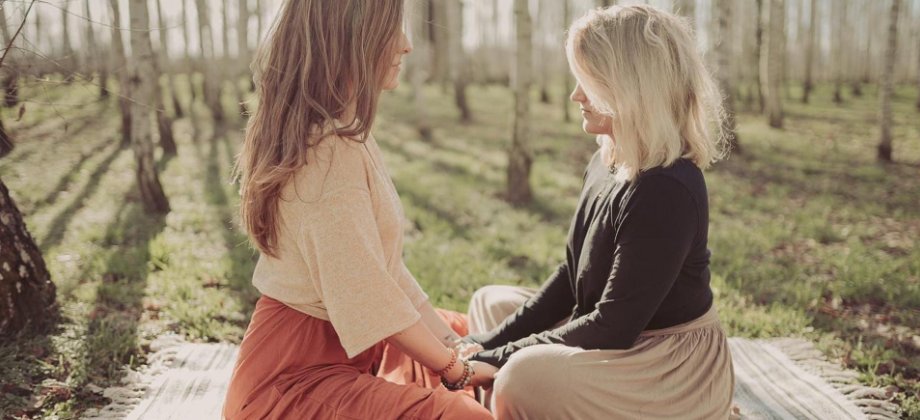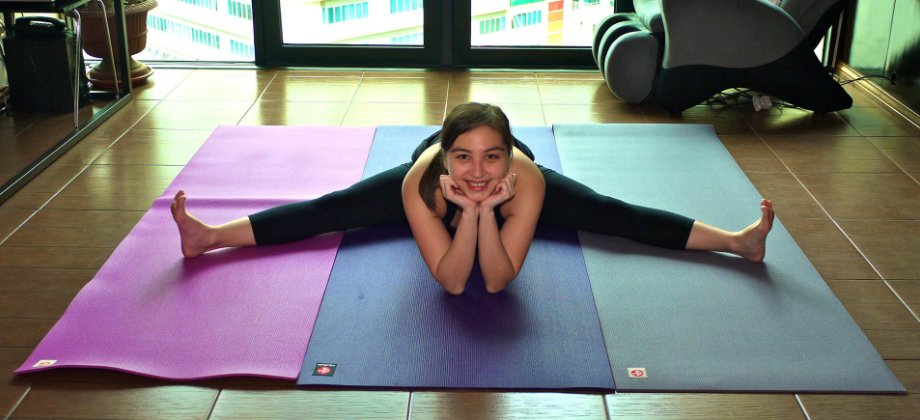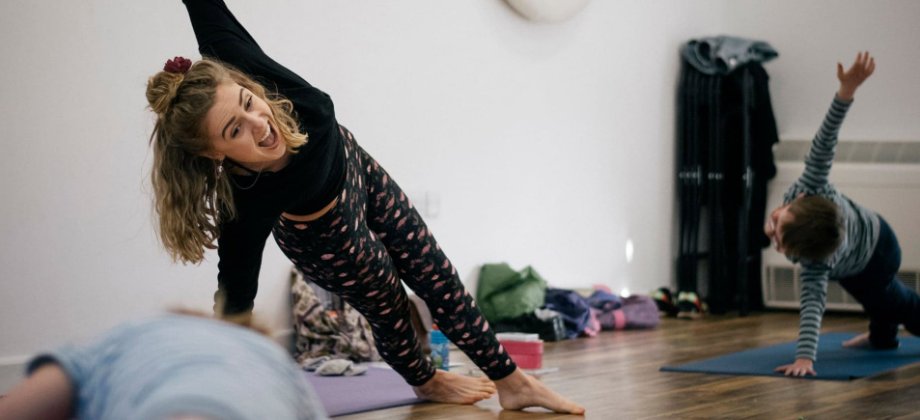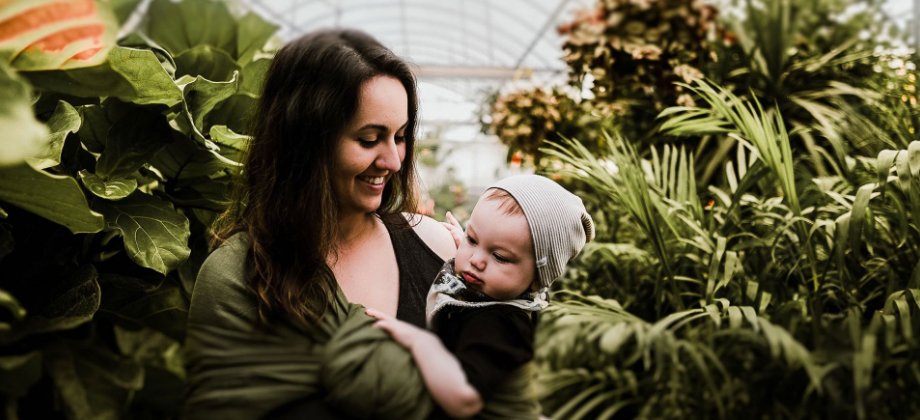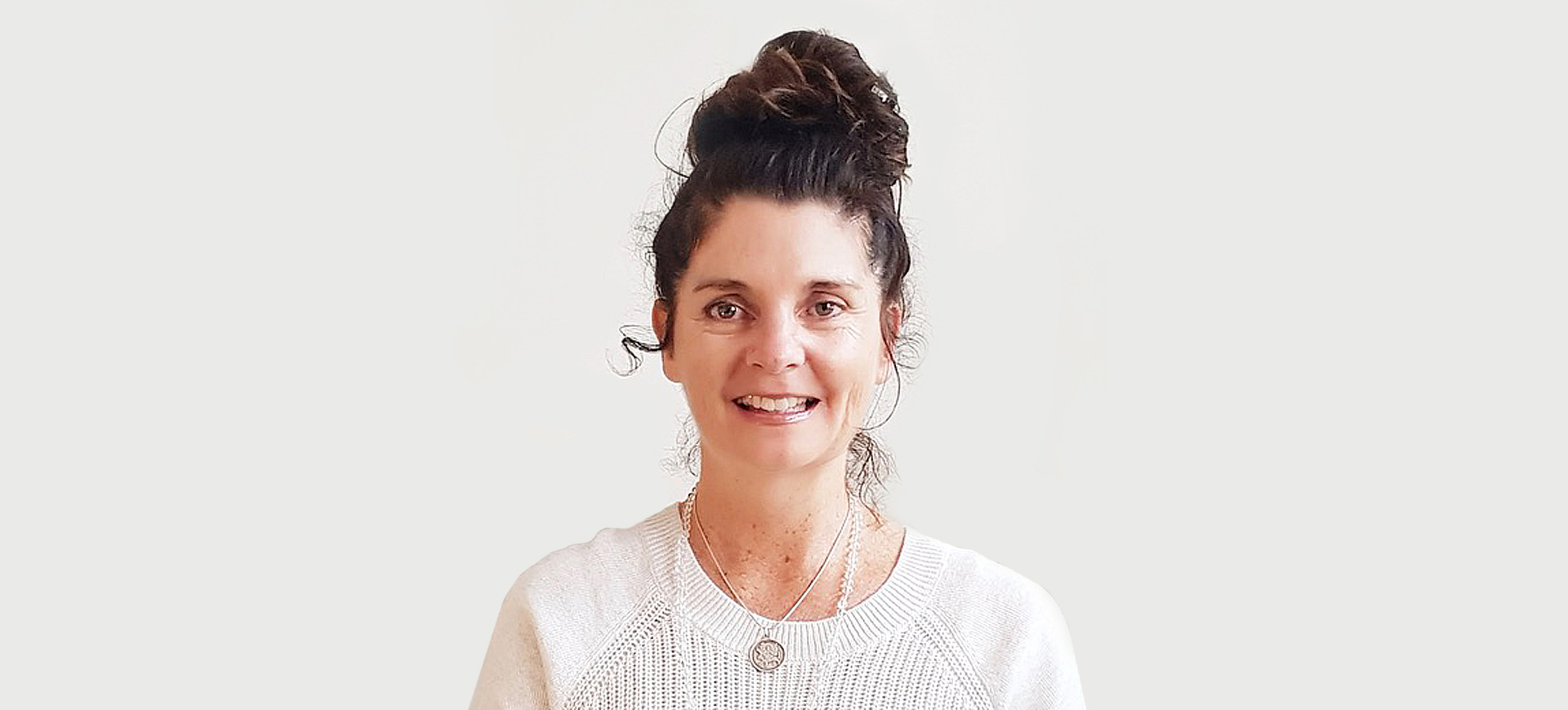
Building a Retreat Business: An Interview with Chetana Meehan
The question of how to make a sustainable living as a yoga teacher comes up frequently in discussions with new teachers. So we were excited to have the opportunity to talk with Chetana about how she started out and how she built her business.
Chetana Meehan is the founder and sole teacher of Yoga for the Soul Retreats (YFTSR), offering yoga and meditation retreats in Australia, Bali, India and Nepal. Based in Australia, YFTSR is approaching its second birthday and already Chetana is running sold-out retreats throughout the year.
We asked her what advice she would give to yoga teachers who want to offer fulfilling and financially viable retreats.
How did you start out on your path to become a yoga teacher — and why did you choose to focus on retreats?
My love for travel (and adventurous travel in particular) actually came before the yoga part for me. In my twenties I spent five years travelling in developing countries. I loved the experience of immersing myself in different cultures.
I then returned to Australia and studied for three years to become a Wilderness Guide. Being in nature has always felt powerfully spiritual, and looking back, I think all that time out on bush walks, canyoning and abseiling in the wild led me towards yoga. But it was all action and high energy.
It made me strong; but when I went through a difficult time at the age of thirty-four, I discovered a yoga practice that supported me physically, mentally and emotionally. So I decided to delve into a 3 year full time diploma in Satyananda Yoga. And before I knew it I made the decision to move into the yoga ashram. Within three months of my stay I knew I was exactly where I was meant to be completely immersing myself in a very traditional yogic way of life.
...and fantasising about guiding people on incredible journeys in amazing countries while sharing the transformative practices of yoga and meditation with them. And that’s where it started — in passion.
Seven years later I remember sitting on the marble floor in the Indian ashram, looking through the grilled door to the huge barbed wire fence that divided us from the rest of the world, and fantasising about guiding people on incredible journeys in amazing countries while sharing the transformative practices of yoga and meditation with them. And that’s where it started — in passion.
What was your first ever retreat like, and did you learn a lot from it?
Oh, it was fabulous! My first retreat was in Nepal with eight attendees, and they were all blown away by the experience — as was I. It felt like being away with a great bunch of friends. It was a lot of work, but running retreats draws on all the things I love most in the world — so it’s easy in a sense.
My first retreat was in Nepal with eight attendees, and they were all blown away by the experience — as was I. It felt like being away with a great bunch of friends.
I’ve spent lots of time in the countries where I now run retreats, and my guiding and extensive travel experience means I don’t feel daunted by being responsible for other people in places that are new to them. And of course, it was a joy to share yoga and meditation with them along the way.
I think that’s a key to running retreats without getting stressed out — take it slow, and start with something manageable to you. Use the skills you already have and think about what you really like doing, and what you really don’t like doing; and collaborate with other teachers or hosts to fill in any gaps.
After the first one I knew there was no going back. This was what I wanted to do.
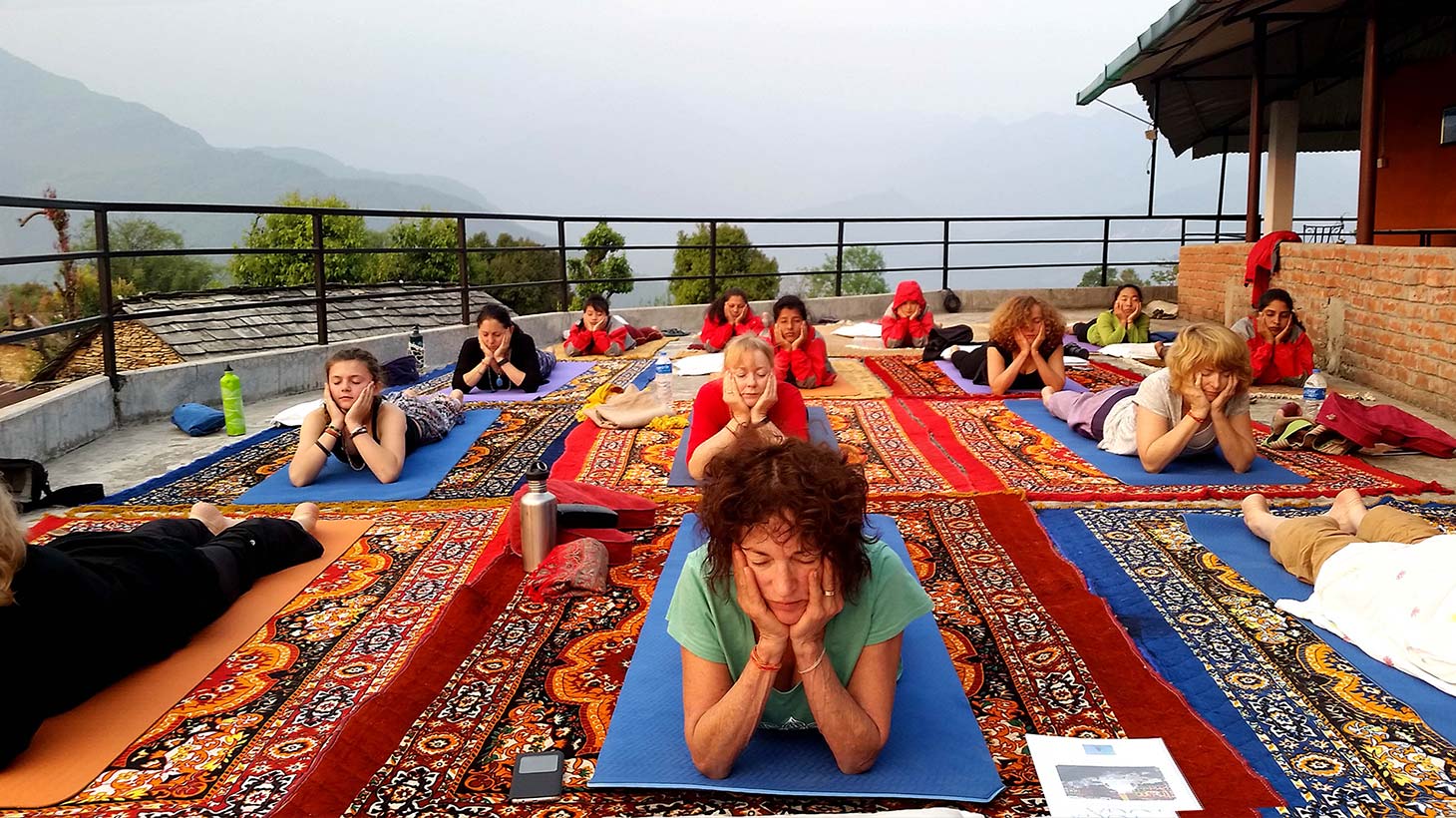
Did you have a business plan from the start, or did you take a less structured approach?
It was less structured in the beginning, and I’m lucky that it grew quite organically from the early days. I had a business plan for my general classes, but not for retreats.
From the start it’s been clear that there’s a keen audience for what I’m offering, and I’ve been very clear about my niche and my audience. I offer an immersive experience of different cultures with traditional yoga and meditation practices, and lots of love and support to help my students step into their potential. The people who are interested in that respond to that.
I also knew that teaching had to be able to support me financially as it is my sole income, and that’s a huge motivator.
But I always aim for excellence and success in whatever I do because there’s no point in applying myself half-heartedly. I also knew that teaching had to be able to support me financially as it is my sole income, and that’s a huge motivator.
I still see myself in the start-up stage, as YFTSR has been running for less than two years and I do still run weekly classes while I continue to build the retreat aspect of the business — but over the last six months or so I’ve been creating more structure, and I took a business marketing course which has helped to streamline everything and develop my ‘brand voice’.
You do all retreat planning and execution on your own, but YFTSR does have a small freelance team who help behind the scenes with marketing and copywriting. How did you get to the point where you could employ other professionals to support your work — and has it made a big difference?
Yes — hiring people with the skills to add value to my business was a must. And for any business to build they should run with their strengths and seek help where help is needed.
I made the decision to invest a certain amount of money into marketing and business support. I’ve used online hiring platforms to connect with freelancers who work remotely and who really believe in what I’m doing. And crucially, they understand who my current and potential students are, and how to relate to them in a meaningful way.
Hiring people with the skills to add value to my business was a must. And for any business to build they should run with their strengths and seek help where help is needed.
I don’t think I really planned to have a team around me, but I did know that to build my business in the way I wanted to would require a lot of work, and probably more than I could manage on my own. And hey, I don’t want to be tied to the computer 24/7. I want to be out there teaching, and planning retreats, and developing relationships with people who can benefit from what I do. As my overall understanding of ‘business’ grew, I recognised that an investment was needed in order to get to the next stage — so I’ve invested my savings to employ the support I needed. It’s a scary thing to do, but it’s definitely been worth it for me.
What advice would you give to another yoga teacher interested in beginning — or expanding — the retreat side of their business?
I really recommend studying how to run a small business, how to run retreats — whether you do it on your own or enrol on a course. Make sure you’ve been on a few retreats that are similar to what you want to offer, and make sure you have a solid depth of understanding about what you’re teaching. Retreats are intense, and take a lot of energy, and you’re with your students all day every day. They expect — and deserve — to get more than they do in a regular yoga class.
On a practical level, I’d say:
- Always do a reconnaissance of your venue, restaurants, and any activities you wish to include.
- Take time (and advice if needed!) to get your costing and pricing right to ensure you’re making a profit — yes, even on your first retreat, value what you do and what you offer.
- Consider insurance and any relevant legal documents required, especially if you’re running retreats outside your home country
- Your website and social media presence are incredibly important for running a successful business today — yoga businesses included. It doesn’t have to be costly, but look at what teachers who run similar offerings are doing, and then find a way to stand out. Embrace your uniqueness and you’ll find your students.
And on a more person level, remember to look after yourself. For me, when I started to practise what I was preaching and focus on my own self care daily, and truly live by my innermost values, I became so much more dedicated and productive. Have at least one full day off per week. Seriously. No work, no emails, no phone calls, nothing. Space is needed for creativity!
Have at least one full day off per week. Seriously. No work, no emails, no phone calls, nothing. Space is needed for creativity!
Finally, take time for your personal practice — it’s crucial to stay healthy physically, mentally, emotionally and spiritually when you’re undertaking the enormous task of building a business, and it’s your way of maintaining balance. As yoga teachers, we know how important this is, but we have a tendency to lose our own balance while we’re helping other people find theirs!
Find out more about Chetana at Yoga for the Soul Retreats, and on her Facebook page.

